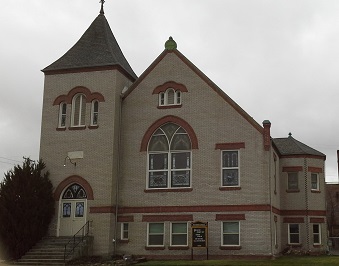Sabbath
laws were very important in Israel. Sabbath was a time of rest, a time of
renewal, a time reserved for worship and remembering all that God had done for
the Israelites.
I don’t think Jesus is suggesting that we
should not be faithful in observing the Sabbath. What Jesus is teaching us is that Compassion and mercy are more important
than observation of the law!
Whenever Jesus encountered someone
suffering, whether blind, or deaf, or with any kind of disability, Jesus
immediately responded with healing. He never refused to heal anyone he
encountered. Jesus even healed people without their having to ask. Not only
does Jesus free the woman in today’s reading from her crippling condition
without her even asking, but he does this on the Sabbath right in front of the
leaders who taught that any kind of work on the Sabbath day, including the work
of healing, was contrary to the will of God!
Jesus
insisted healing on the Sabbath was honoring God. He reminded the leader of the synagogue that
he let his livestock get a drink on the Sabbath, which was technically working.
So why would God oppose the healing of this “daughter of Abraham whom Satan bound for eighteen long years” on
the Sabbath?
In Matthew’s version (Matt. 12:1-14),
Jesus’ hungry disciples pick heads of grain to eat on the Sabbath. Jesus
defends them by reminding his listeners of an example from the Old Testament.
In 1 Sam. 21:1-6, David asks the priest, Ahimelech, for five loaves of bread to
feed his soldiers. When the priest has no common bread, only holy bread, David
persuades the priest to give him the holy bread to feed his soldiers. Jesus is
clearly teaching that Compassion and
mercy are more important than observation of the law! Laws should be set aside
so that people have the resources they need for life.
Being a disciple of Jesus, trying to live
as Jesus lived is not natural for human beings. Two recent psychology
experiments have caught my attention. Studies of revenge have demonstrated that
revenge is very pleasurable to humans. When we think about revenge, our brain
experiences the same pleasure we receive from narcotics. Yet, every Sunday we
pray the Lord’s Prayer, “forgive us our
trespasses as we forgive those who trespass against us.” Clearly, actually
forgiving those who have wounded us is a challenge! It’s not in our nature to forgive. It’s a choice we have to make if we want to
live as Christians.
The second was a typical psychology
experiment where undergraduate students were randomly assigned to two different
conditions. In one condition they were
led to believe they had power and in the other condition that they did not have
power. Then the researcher measured the empathy shown by each group. Those who
believed they had power showed substantially less empathy. Now these are just randomly assigned
undergraduates, but the results do seem to fit with our experience of persons
in power. Having power makes it all too
easy to believe your perspective is the only right way to see the world.
We humans have a strong desire to be in
control of our lives. Yet, that power,
that control, interferes with our capacity to live as Jesus lived. Disciples
have to choose to behave in an unnatural way! As Christians, we are called to give
those around us the benefit of the doubt, to imagine sympathetically the
challenges they may face, to emphasize and identify with them rather than see
them as opponents or obstacles.
We are faced with the choice between
self-absorption and compassion and mercy on numerous occasions nearly every day
of our lives. Unless we consciously choose to act with compassion and mercy and
forgiveness, it will be all too easy to assume our challenges are greater than
those faced by others, our frustrations more valid and vexing, our excuses more
understandable, our priorities more important and so on and so on until,
suddenly, we really have moved ourselves to the center of our universe.
We are called to practice “intentional
compassion,” to see those ALL around us
as fellow children of God worthy of respect, honor and love. We need to
remember that compassion, mercy and
forgiveness are more important thatn the law. And, I think we also need to
honor the Sabbath as a time to remember all God has done for us and to renew
our commitment to following the way of Jesus. We need the Sabbath to remind
ourselves to pay attention, to be aware, to notice those around us and to
choose compassion with those around us rather than putting our goals and
concerns first.

No comments:
Post a Comment